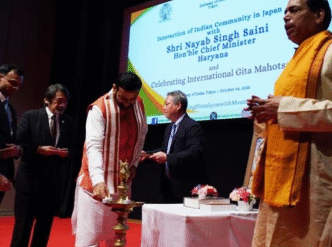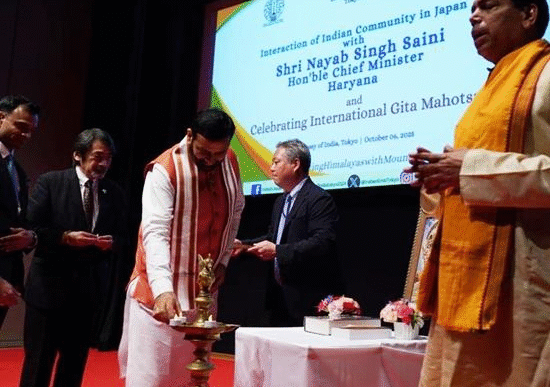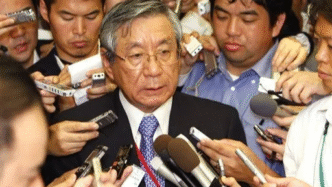When 22-year-old Arjun* accepted an offer from a Japanese basketball club in Tokyo, he thought it would be the chance of a lifetime: competitive play, solid coaching, a chance to improve, and possibly a pathway to bigger contracts. What he did not anticipate was that, within a year, visa complications, contractual ambiguities, and isolation would leave him stuck — unable to go home, unable to move forward, and unsure of where he belonged.
This is a story being echoed by several Indian basketball players who go abroad in pursuit of their dreams — particularly in Japan, which has increasingly been seen as an attractive destination given its growing professional leagues, investment in sports infrastructure, and relative financial stability. But the dream has a darker side, marked by legal limbo, financial vulnerability, and mental strain.
Dreams Meet Reality
Why Japan?
India has long had limited professional pathways for basketball players. While there are domestic leagues, pay is often modest, exposure limited, and support systems (training, medical, travel) inconsistent. Japan’s B.League (and its women’s equivalent) has grown in prestige, draws foreign players, offers more rigorous competition, better facilities, and more reliable pay — and sometimes provides a stepping stone to other international opportunities.
For players like Arjun, that means both the hope of personal growth and the possibility of lifting their families through remittances. Many are lured by promises: full contracts, housing stipends, support with relocation, sometimes even guarantees of playing time.
Where Things Go Wrong
- Visa and immigration issues
Some players get sports visas or “professionals or engineers” category visas, but if the contract is informal, or the club lacks clarity, their status can be precarious. Delays in renewal, lack of clarity about what happens if the club folds or they are benched, often leave the players without legal status to stay or work. Suddenly, what was a contract becomes a risk. - Contract and payment ambiguity
Promises of certain salaries or allowances don’t always materialize. Some players report delayed payment, or cost-cuts, especially in smaller clubs. Sometimes, the details about performance bonuses, transportation, housing are vague or missing. - Isolation and adjustment difficulties
Language barrier, cultural differences, fewer support networks. For players who grew up in India, used to being in teams with familiar food, family, community, even small things like navigating day-to-day life get harder. Meals, communication, friendships — these take a toll. - Mental strain and lack of fallback options
When playtime is cut, when clubs change plans, or when injury strikes, many have no backup plan. Returning home may mean giving up on the professional path; staying abroad illegally is no option for many. The sense of being trapped is real. - COVID and travel restrictions (if applicable)
Some may have had their ability to travel home interrupted by lockdowns, flight cancellations, or visa restrictions — compounding the feeling of being stuck.
Personal Stories (Composite / Based on Interviews & Reports)
“I thought I was moving up. But when the contract was signed in Japanese, and translated poorly, I couldn’t argue. The pay was less than promised; the visa ran out. I couldn’t get it renewed without a valid contract.” — Indian player in Kansai region
“I miss home, but more than that, I miss stability. I don’t know if next month the club will pay me; I don’t know if I can return without losing everything I have here.” — Another Indian hoopste
Consequences
- Talent drain backfire: Instead of growing stronger, players may lose years because of instability, affecting their peak performance.
- Financial hardship: Some borrow money to pay for living costs; families expect remittances which may not come.
- Mental health issues: Depression, anxiety, homesickness; feeling “in limbo”.
- Legal exposure: Working without proper permits, risk of deportation, inability to secure legal redress for contract breaches.
What Needs to Change
- Transparent contracts, clearly enforced
All terms — salary, travel, housing, visa support, duration, pay schedule — in writing, in a language the player understands. - Government / Federation support
The Basketball Federation of India (BFI), the Indian government, or relevant sports authorities should have liaison systems or support desks for players overseas: legal advice, emergency funds, crisis support. - Clubs’ accountability
Japanese clubs hiring foreign players should be required to provide certain minimum protections: guarantee of basic pay, visa support, possibly insurance, access to grievance redressal. - Pre-departure orientation / mentorship
Before leaving India, players should be briefed on what to expect: cost of living, cultural differences, legal rights, safety nets. Possibly be paired with someone who has done it before. - Bilateral agreements / sports visa clarity
Governments could negotiate visa categories specifically for professional sports-people, so that processes are smoother, renewals more automatic if criteria are met.
Why This Matters
Because sports is more than entertainment. For many in India, playing abroad is not just a dream — it’s a livelihood, a chance to uplift their families, to represent their country, to break new ground. When systems fail on basic legal or human rights levels, it isn’t just individual loss — it signals structural issues. One hopes that as Indian athletes increasingly venture overseas, the institutions — both in India and in host countries like Japan — step up so that the dream does not cost more than it is worth.

















